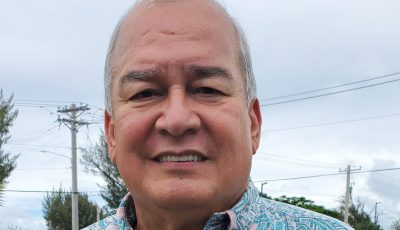NMI unaffected by food stamp cut
The U.S. Department of Agriculture’s proposed changes to rules for availing of food stamp benefits will not affect the CNMI’s Nutritional Assistance Program.
Last July 22, USDA proposed a new rule seeking to tighten automatic eligibility requirements and closing a “loophole” that allowed people receiving Temporary Assistance for Needy Families, or TANF, benefits to automatically be enrolled into the SNAP program in the U.S. mainland.
TANF, a federal assistance program, helps pay for food, shelter, utilities, and expenses other than medical while the Supplemental Nutrition Assistance Program, or SNAP, provides financial aid for food.
Delegate Gregorio Kilili C. Sablan (Ind-MP) told Saipan Tribune that, after reviewing the proposed rule, it has been determined that the changes would not impact individuals who receive food assistance in the Marianas.
“The proposed rule applies to individuals who receive benefits from any program funded by [TANF]. TANF is not available in the Marianas, so no one would be affected,” said Sablan.
About 4,401 families in the CNMI avail of NAP benefits.
Sablan noted that the proposed rule changes were not discussed during his meeting in early July 2019 with USDA Deputy Undersecretary and Food and Nutrition Service Administrator Brandon Lipps,.
“…We talked about the $25 million in disaster food assistance that I included for the Marianas in June [for] Public Law 116-20. I want to be sure the [USDA] helps the Marianas NAP office use that $25 million effectively to feed our families, who are trying to recover from last year’s typhoons,” he said.
CNMI Nutritional Assistance Program administrator Walter Macaranas echoed Sablan’s assurances. “In my opinion, this proposed rule does not impact the NAP,” he said.
He said the TANF program is not offered in the CNMI, so the NAP will not be affected by the cuts of food stamp benefits. “The ruling won’t affect NAP, because we don’t offer TANF here, and this automatic eligibility does not apply to this program,” he said.
TANF recipients receive automatic eligibility for food stamps in certain states, if they meet income and other requirements for TANF.
Guam currently implements the TANF program, though, and their food stamp program might be affected by the rule change.
Macaranas said that the Supplementary Nutritional Assistance Program and the NAP operate on block grants, but differ by rules and regulations. NAP negotiates a memorandum of understanding every year, which outlines the rules that are to be followed while implementing the block grant.
He said that applicants of food stamps must pass an income and a resource test; with income being within NAP’s income bracket, and resources being the applicant’s bank accounts. There are certain brackets for individuals under the age of 54.
“Right now, the recipients are going through these tests and are meeting the requirements for NAP eligibility,” he said.
There is also a possibility for automatic eligibility in the CNMI but it is only applied to people who are receiving Supplemental Security Income from the Social Security Office. These recipients are given a minimum allotment, which varies by the size of the recipient’s household.
USDA estimates that 1.7 million households—3.1 million people—will not meet the eligibility of SNAP benefits under the new rule changes.
Attempts were made to obtain comments from the administration of Gov. Ralph DLG Torres on the possible impact of the rule change to the CNMI but there was no response as of publication.



























